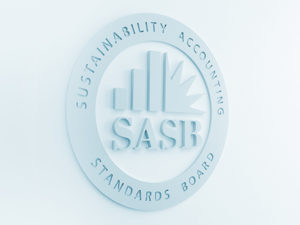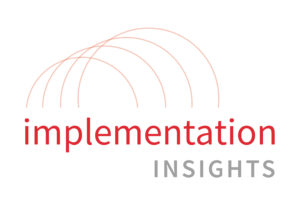Among the many paths to progress, capital markets can be a powerful lever of systemic change. We were reminded of this today with the publication of BlackRock CEO Larry Fink’s annual letter to shareholders.
BlackRock has been a leading force in the global investor push for improved ESG disclosure. In today’s letter to CEOs, Mr. Fink emphasized that investors need access to consistent and high-quality information on the ESG factors that impact the value of companies. Similar to his 2020 letter, he urged companies to provide this information via SASB and TCFD-aligned disclosure. “Because better sustainability disclosures are in companies’ as well as investors’ own interests, I urge companies to move quickly to issue them rather than waiting for regulators to impose them,” he wrote.
Throughout 2020, powerful investor voices echoed the call for improved ESG disclosure. Cyrus Taraporevala, the CEO of State Street Global Advisors, similarly asked companies to use SASB Standards. The “Maple 8,” the largest pension fund managers in Canada, asked portfolio companies to use SASB Standards and TCFD Recommendations. SASB’s Investor Advisory Group—comprised of 55 members representing 12 countries and $41 trillion in assets under management—issued an updated statement calling on companies to use SASB Standards in disclosures to investors. And, the Board of Governors of the Investment Company Institute (ICI)—the leading global association of regulated funds in the US market—encouraged US public companies to provide disclosures aligned with SASB and TCFD.
In his 2021 letter, Mr. Fink says that he “strongly support[s] moving to a single global standard, which will enable investors to make more informed decisions about how to achieve durable long-term returns.” Investors and other providers of financial capital have unique information needs to ensure they can integrate ESG factors into investment decision making in a rigorous, scalable way. As such, they have increasingly coalesced around SASB Standards and the TFCD Recommendations, which facilitate corporate disclosure on the environmental, social, and governance (ESG) issues most closely tied to enterprise value creation. Because the SASB Standards are industry-specific, metric-driven, and focused on financial materiality, they enable integration of ESG considerations into investment and stewardship decisions across global portfolios and asset classes. They also result in comparable data that can enhance the analytics and ratings ecosystem.
ESG disclosure tailored to investors fits within a larger system of sustainability reporting that serves a broad range of stakeholders, including policy makers and civil society. Last year saw great progress towards a coherent system, as the five major players in sustainability disclosure—CDP, CDSB, GRI, IIRC, and SASB—announced a shared vision for how existing sustainability standards and frameworks can complement Financial GAAP and serve as a basis for a comprehensive corporate reporting system that meets the diverse information needs of a broad group of audiences. Additionally, key global institutions including the IFRS Foundation and IOSCO announced their interest in leading progress towards a comprehensive corporate reporting system. (SASB’s response to the IFRS Foundation’s public comment period can be found here.)
As investors have spoken, companies have responded: we saw a 363% increase in companies reporting SASB metrics from 2019 to 2020. Mr. Fink’s letter is a powerful reminder of the role of capital markets in driving progress in ESG disclosure. Progress on disclosure matters because it brings us closer to progress on performance. When investors can compare companies and direct capital to the ones best managing critical sustainability issues, capital markets and society are more efficient and resilient as a result.




